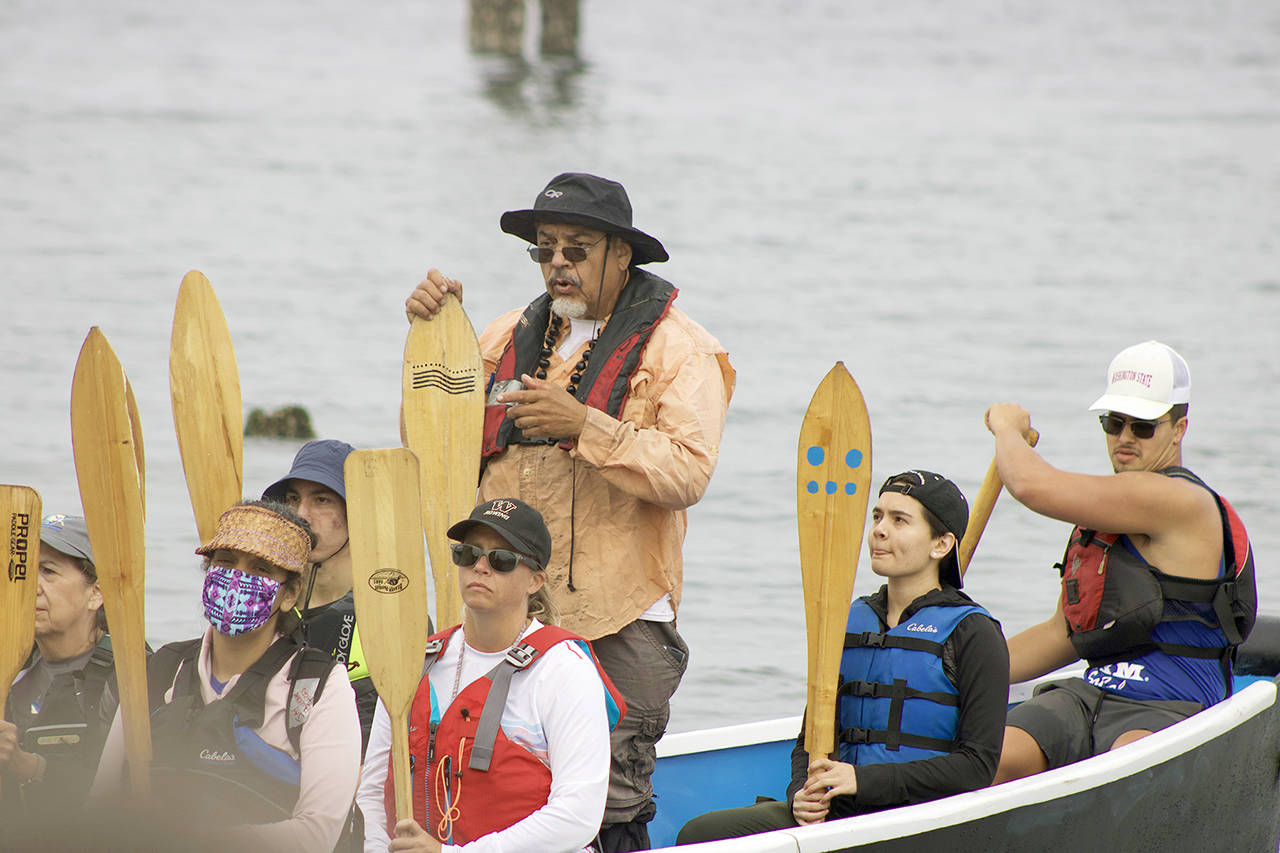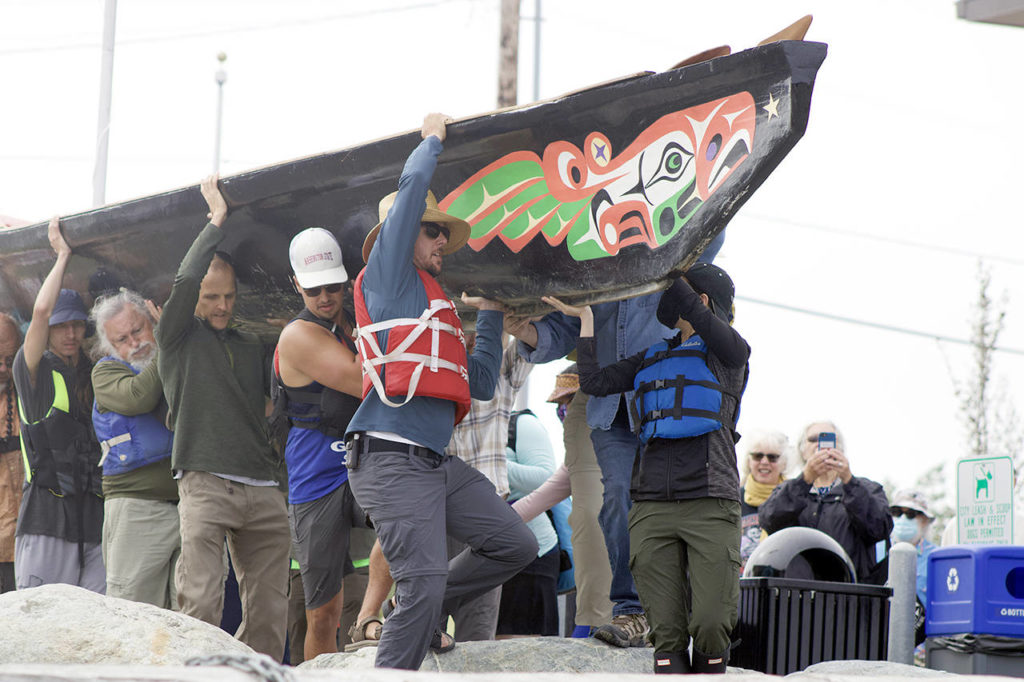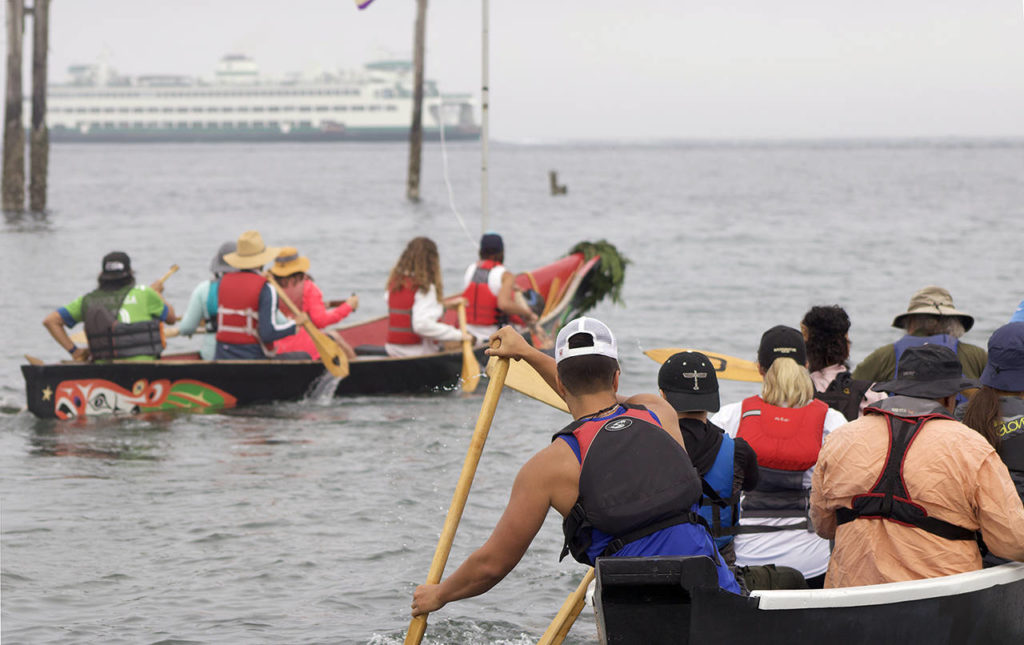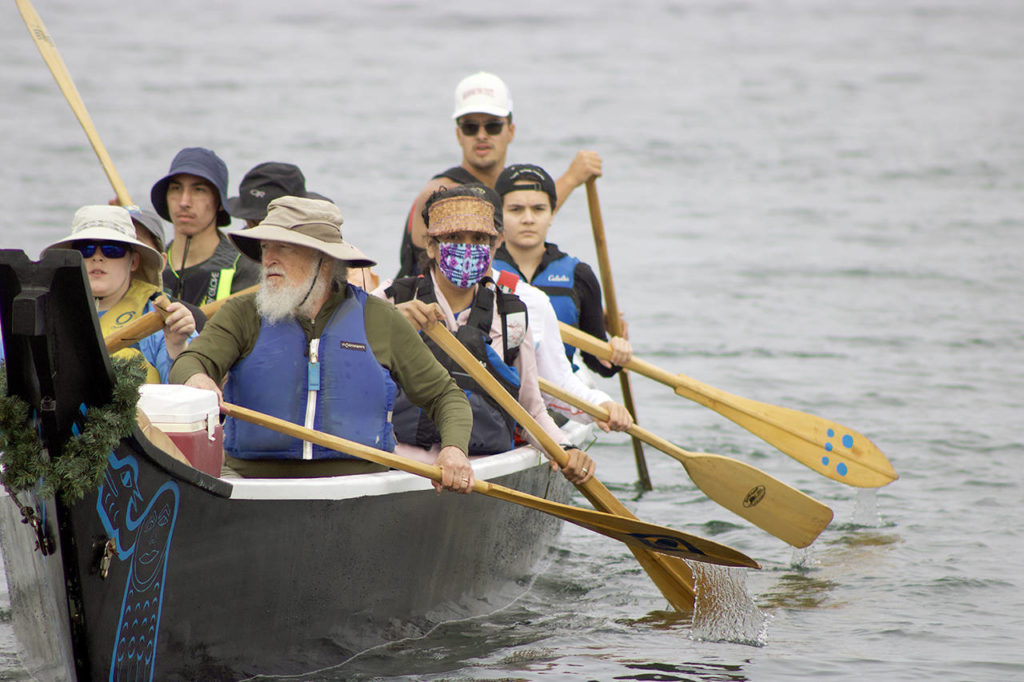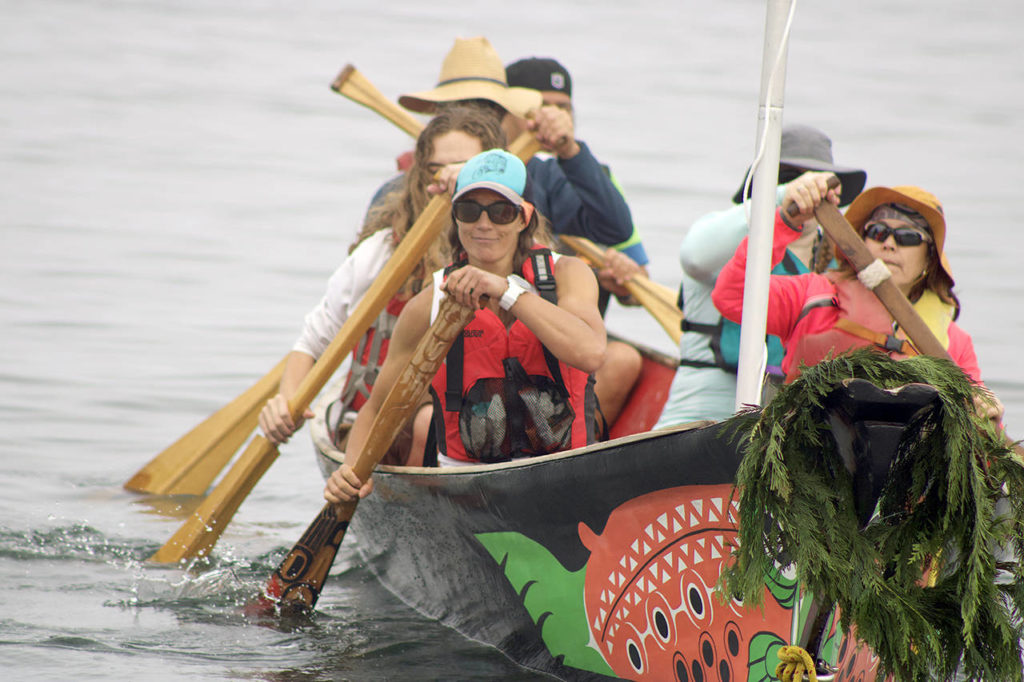EDMONDS — Over a dozen paddlers disappeared into the gray horizon early Monday for the Blue Heron Canoe Family’s Healing Waters 2021 journey.
Some canoes are led by individual tribes, but canoe families, like Blue Heron, can be comprised of individuals of various ages, races and backgrounds from various tribes.
While the annual tribal journey was cancelled, this healing journey allows the Blue Heron paddlers to reconnect with cherished Coast Salish traditions.
“Hopefully one day this will be a gathering place for many canoes, which is why we’re doing this today — to make sure that it happens again,” said Mike Evans, Blue Heron patriarch. “Not just one canoe, two canoes, but a hundred and two canoes. We’re creating more relatives, more family members. We’re building the family bigger and stronger.”
This is the canoe family’s first journey since the pandemic began.
“It is amazing,” said Marylin Bard, Blue Heron family member. “I’m so blessed and honored that my canoe, the Willapa Spirit, can go back out on the water.”
The Willapa Spirit was awakened for its return to the water after remaining inactive out of respect of the death of its “relative,” Marvin Oliver.
Oliver, an artist and University of Washington professor of Quinault and Isleta Pueblo descent, died in July 2019. Bard, Oliver’s sister, is keeping his canoe alive.
“On Saturday, we had the ceremony — the awakening of the Willapa Spirit,” Bard said. “So now she gets to go out into the water.”
The Spirit traveled 25 miles to Camano Island State Park alongside the second canoe, the Blue Heron, on Monday. This is the family’s first stop in their two-week journey to Lummi Island.
The Blue Heron and Willapa Spirit will also stop in La Conner, as well as at Lopez and San Juan islands.
Before contact with colonists, Northwest waterways including the Salish Sea — Puget Sound, the Strait of Juan de Fuca and the Strait of Georgia — served as the Coast Salish Peoples’ primary mode of travel.
On Sunday, upon the canoes’ arrival in Edmonds, paddlers participated in a traditional celebration, which MyEdmondsNews reported was attended by many people from the community. Prior to embarking, Evans led the group of paddlers in prayer and the boats were later dismissed to the soft beat of a drum and song.
Dozens of people waved and clapped as the canoes left the shoreline in front of the Edmonds Waterfront Center.
For some paddlers, this was a welcome return of tradition, a connection to their ancestors.
This journey allowed Bard to look back at the many journeys that were spearheaded by her father, Emmett Oliver, who helped organize the 1989 paddle from Suquamish to Alki Beach.
“My father — his wish was to see 100 canoes in his lifetime land on Washington state land, and that happened in 2013 with 103 canoes that landed in Olympia,” she said. “In 2024 it will be the 35th anniversary of the Paddle to Seattle and we will be going back to Suquamish.”
Bard continued taking her father to see the various canoe landings until he died at 102.
For Diana White, an Edmonds resident, Blue Heron Family member and member of the Prairie Band of Potawatomi Indians, this was a chance to immerse herself into the rich ancestral canoe culture of the Coast Salish people.
“I’m nervous actually now that I’m kind of getting closer,” White said just before departing the shore. “This has been a long tradition so this is a good place.”
Family members who are not participating in the journey on water will join the paddlers at each stop on land, providing food and company.
Worlds collided for this journey, as the Blue Heron family was joined by representatives from the University of Washington Shell House, which has stored the Willapa Spirit since Oliver’s passing.
“It’s just really been amazing,” Bard said.
Isabella Breda: 425-339-3192; isabella.breda@heraldnet.com. Twitter: @BredaIsabella.
Talk to us
> Give us your news tips.
> Send us a letter to the editor.
> More Herald contact information.
